Media coverage
Share

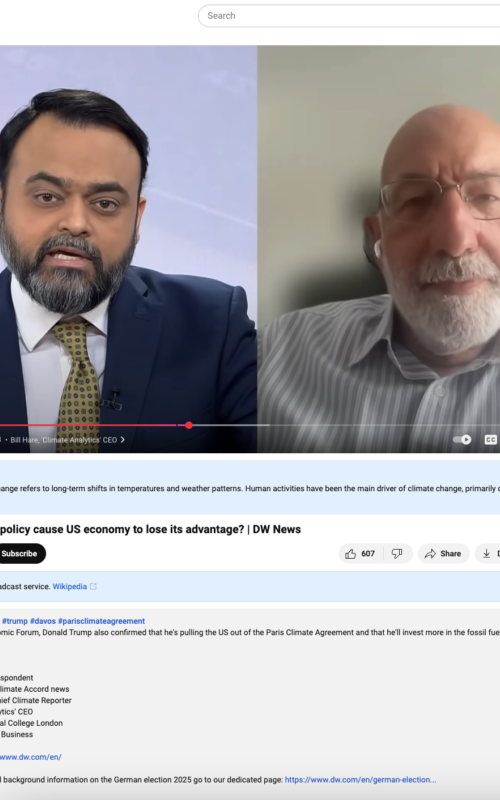
DW News
"This is going to cause a major problem for the clean tech industry in the US", Bill Hare told DW News. "There could be USD$50-80 billion of lost economic opportunities for the US."
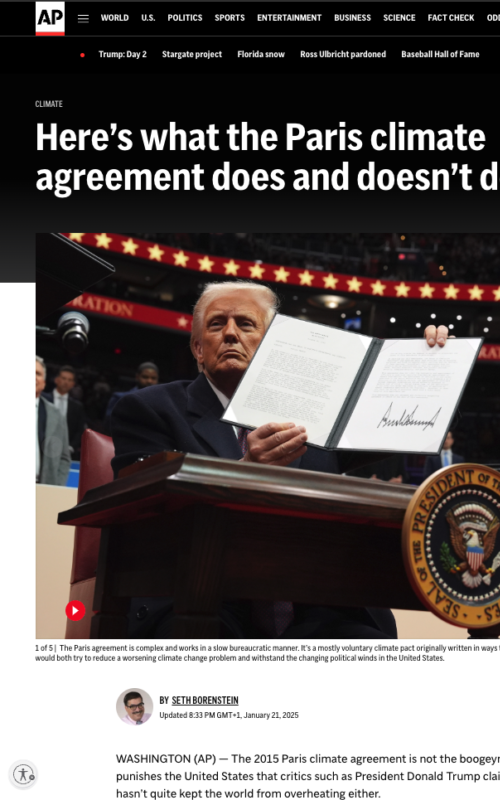
AP News
With the US withdrawal from the Paris Agreement, “the world is more likely to warm slightly more,″ said Bill Hare. “The more the world warms, the faster we will experience more extreme weather events such as flooding, extreme hurricanes, fire, weather, drought, and heat. The U.S. will not be exempt from such events.”

AP News
Trump is taking aim at appliance conservation standards to boost water flow. Thomas Houlie told AP News “industries and private sectors see it (energy efficiency) as adding more constraints on them. They tend to overlook the benefits that will be gained from the measures.”
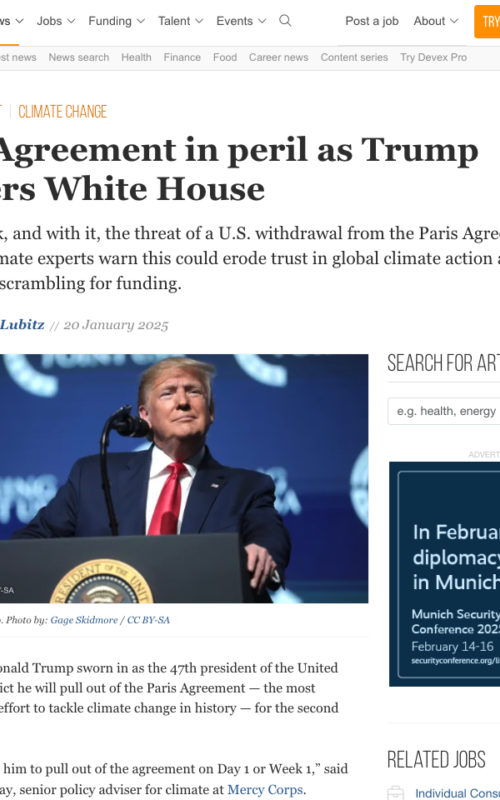
Devex
Even with a Trump withdrawal from the accord, “the Paris Agreement will remain the engine of global climate action long after his final term in office” Bill Hare told Devex.
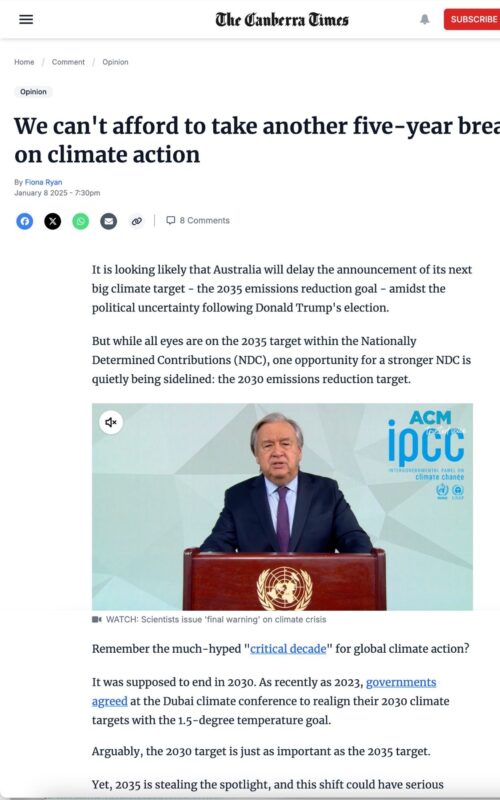
The Canberra Times
According to the 1.5°C national pathway explorer, Australia's 2030 goal should be 57-67% below 2005 levels to align with the 1.5°C temperature limit outlined in the Paris Agreement.
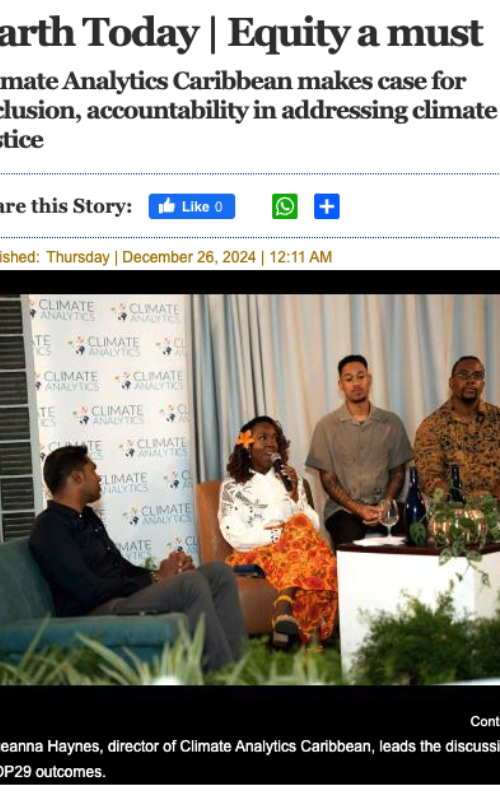
Jamaica Gleaner
At the Coming Back from COP29 summit, hosted on December 17 in Port of Spain, Trinidad and Tobago, Climate Analytics Caribbean shared critical analysis of key issues, including finance, adaptation, loss and damage and just transition.
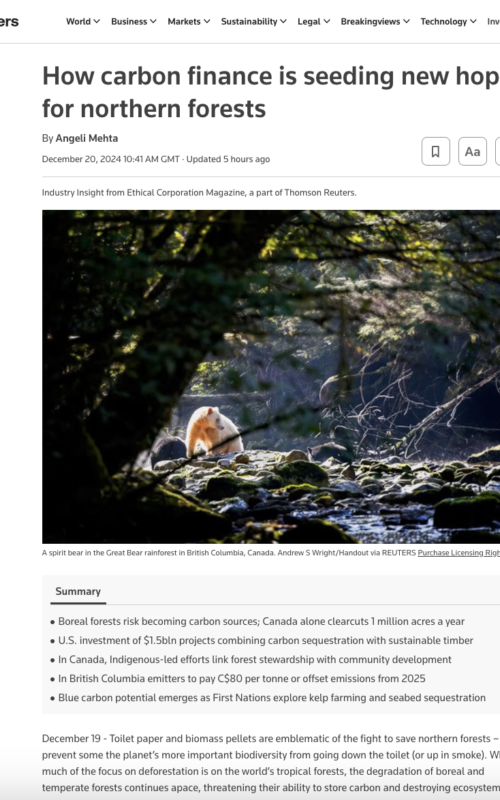
Reuters
Our report "The role of northern forests in limiting warming to 1.5°C" is cited in this long form piece from Reuters on the risks posed to Boreal forests.
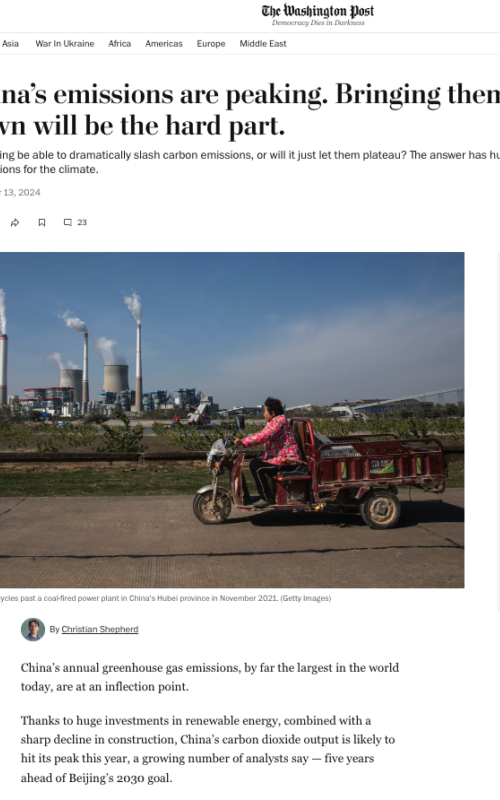
The Washington Post
Dr Neil Grant spoke to the Washington Post about the need for China's peak emissions to be followed by a steep decline.

The Straits Times
The Global Mitigation Potential Atlas is being extended to include countries beyond Southeast Asia, enabling it to model potential cross-regional partnerships.
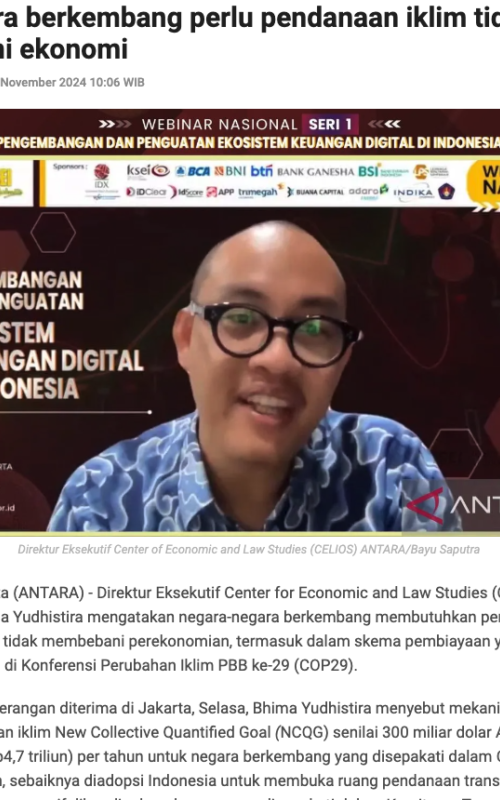
Antara
“The NCQG commitments fall far short of the financing needed. Developed countries have refused to cooperate and instead have been spouting nonsense about the urgency of the situation. The so-called roadmap by the COP29 Presidency to reach $1.3 trillion per year by 2035 is still vague and there is no clear path to get there,” Thomas Houlie said.